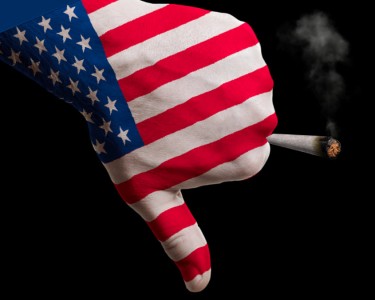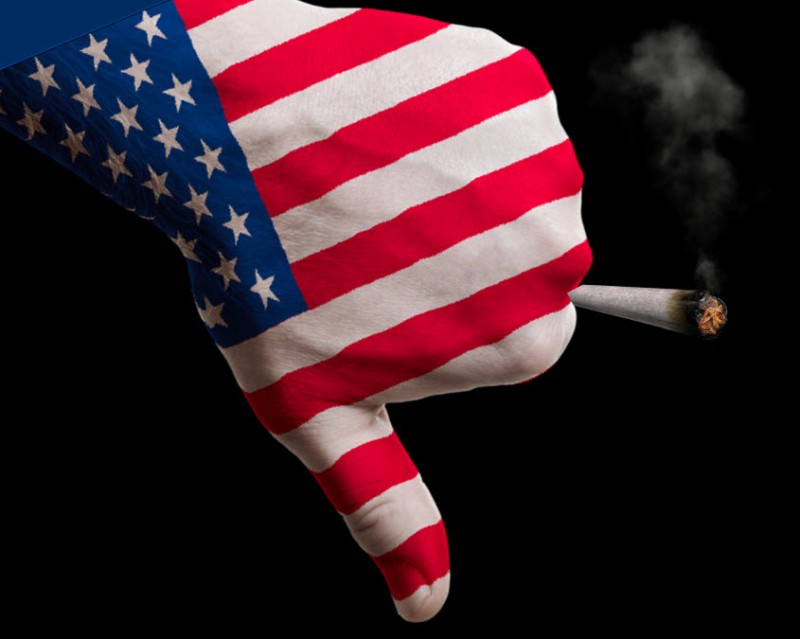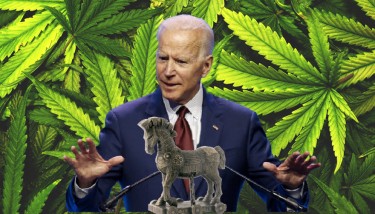
How The Federal Government’s Inability to Legalize Cannabis is killing the industry
Over the past decade, the movement to legalize cannabis in the United States has gained significant momentum. With 38 states having legalized medical cannabis and 22 states allowing recreational use, it is clear that public opinion is shifting towards cannabis legalization. However, despite the progress made on a state-by-state basis, the federal government's continued prohibition of cannabis has created numerous challenges for the industry.
In places where cannabis has been legalized, such as Canada and California, we are seeing some problematic issues arise. These issues stem from over-regulation, which can result in oversupply, inflated black markets, high costs of operating a business, and a lack of access to banking services. These issues are hindering the cannabis industry's growth and stifling the benefits that legalization can provide.
While cannabis legalization has been successful at the state level, the federal government's inaction and political discourse are limiting the industry's potential. In this article, we will explore the problems facing the cannabis industry in several markets, and what needs to happen for the industry to thrive.
A Rock and a Hard Place
A recent Fortune article entitled, “Marijuana growers are between a rock and a hard place as they face oversupply and interstate commerce woes: ‘I’m tired of running a failing business’”" addressed the issues mentioned above. If you want to read the full article, you can do it here; however, below I’ll provide a quick summary of what it said.
The marijuana industry is facing a “failed economics” in legal pot. On the West Coast, which has been the hub for marijuana production in the United States, surplus production is unable to cross state borders due to the federal ban on marijuana.
Prices have declined steeply, leading to issues with the viability of the legal marijuana industry. Licensed growers are feeling the pinch of the 37% cannabis tax in Washington state and are left with virtually no profit margin.
Marijuana businesses are unable to receive loans or credit due to the banking restrictions, and legalizing the drug for national consumption by businesses will be a political challenge. The cannabis industry is looking at the possibility of President Joe Biden’s administration allowing marijuana trade between the states that have legalized it.
This would help the West Coast states to supply the rest of the country, thanks to its favorable climate and cheap, clean hydropower for indoor growing.
Although lawmakers in Washington state have approved a “trigger bill” allowing the governor to enter into an interstate cannabis trade agreement if allowed by the federal government, experts don't believe the policy will go as far as permitting interstate commerce.
Contributing to the glut in Oregon and Washington is the fact that the states licensed so many growers. The initial idea was to ensure enough supply for the legal market, bringing down prices to compete with the black market. But Oregon has hundreds more licensed growers than Washington, resulting in oversupply.
Prices for marijuana are so cheap that it's difficult for the industry to remain sustainable, and some growers are resorting to funneling product to the out-of-state black market just to stay afloat.
Here’s the most important reasons why the cannabis industry is struggling at the moment & the effects of no regulation and over regulation:
-
Licensed growers in some U.S. states have been forced to funnel their product into the black market to stay afloat. (Side Effects of Overregulation)
-
Large cannabis companies such as MedMen and Curaleaf are facing financial difficulties. (Side Effect of Lack of Regulation)
-
The West Coast's legal pot industry is struggling due to oversupply and failed economics.(Mixture of Over and Under Regulation)
-
Producers are hindered by the federal ban on marijuana and state-level regulations that prevent interstate trade. (Cause)
-
Some licensed growers complain that high cannabis taxes leave virtually no profit margin for producers. (Cause)
-
Lawmakers in some states are seeking approval for interstate cannabis trade agreements. (Action)
-
The oversupply of cannabis in Oregon, Washington, and Colorado is the result of the states licensing too many growers. (Partially True)
-
Prices for cannabis products have plunged due to oversupply, making it difficult for businesses to remain profitable.(Effect)
-
Keeping the industry sustainable is a significant challenge due to cheap prices and oversupply. (True)
NOTES:
There are a few observations in the article I don’t necessarily agree with such as the reason for the problem being that the State is oversupplying licenses to grow. While this may be true under the current circumstances, it’s only due to a federal blockade against the interstate commerce that makes it so.
Not all States in the US would be optimal for growing cannabis. Some states with have a geographical advantage, meaning that under a federally legalized scenario - oregon having a surplus of cannabis is a win. The mere fact that legal growers are forced to sell illegally to stay afloat should be more than enough evidence of this fundamental truth.
Furthermore, to place a cap on licenses is to place a cap on entrepreneurship and growth. Eventually, a few groups will take over all of the licenses and you’d be capped at the innovation of these set groups.
Why most of the blame falls on the Federal Government
The cannabis industry in the United States is facing significant challenges, and the government is to blame for most of them.
One of the major issues is that interstate commerce of cannabis is illegal, which means that states cannot trade with each other. This has led to oversupply and shortages in some areas, creating instability in the market.
Although Canada and Mexico have both legalized cannabis, the federal government has been hesitant to follow suit, hindering progress.
It is frustrating for those in the industry who are trying to make a living and provide safe, quality products to consumers. The government's reluctance to legalize cannabis is making it difficult for businesses to operate, stifling growth opportunities. This is particularly concerning as the industry has the potential to create jobs and generate revenue for the economy, especially in a time of such high inflation.
The reasons for the government's opposition to legalizing cannabis are not entirely clear, but it may be due to their monetary allegiances to powerful lobbies such as the pharmaceutical industry, the prison industrial complex, and law enforcement.
The pharmaceutical industry, in particular, has a lot to lose if cannabis becomes a mainstream alternative to prescription drugs. The government's inability to legalize cannabis may be a result of their desire to protect the profits of this industry, even if it means denying patients access to alternative treatments. And since the pandemic, I think most people can agree that these industries have politicians by the balls.
Similarly, the prison industrial complex and law enforcement both benefit from the criminalization of cannabis. Many individuals have been incarcerated for non-violent drug offenses, disproportionately affecting minorities and low-income communities. These incarceration numbers back their reports, which secure their funding. If you were to remove cannabis from their list of crimes, they would have to actually stop crime - which would be too difficult and would affect their bottom line.
Some politicians are proposing policy changes that favor big industry, exacerbating oversupply issues and creating an uneven playing field. For example, a federal tax on cannabis would make it more expensive for consumers and hinder the growth of small businesses. Imagine having to pay 50% more for your weed in taxes. Where do you think you’d buy your weed from? The dispensary or the dude down the street that’s got some killer weed?
Some regulations favor large corporations over small businesses, further compounding the problem of oversupply. These include limited licensing schemes, over taxation and regulation.
This can only make us conclude that the government is responsible for most of the challenges facing the cannabis industry in the United State today. And while we’re trying to debate on how to fix the complex relationship between federal and state law, regulations, etc, we have to ask ourselves whether we need to “fix all of this”. Perhaps, simply reducing it to the simplest, most effective means possible is the right way?
The illegal interstate commerce of cannabis limits growth opportunities and creates instability in the market. This is definitely only true because there are gatekeepers with fully automatic rifles and an army willing to jail you if you break the rules.
The fact of the matter is that the solve is easy. We need swift action on federal legalization. We need to stop thinking about Equity and make it accessible. Over supply of licensing will work itself out in an open marketplace.
Make it easy for people to grow and sell and place the regulations and control on interstate and international commerce. That way, you give growers a chance to establish themselves, the market will create the opportunities for both small and big commerce. However, only if the government stops meddling with it







